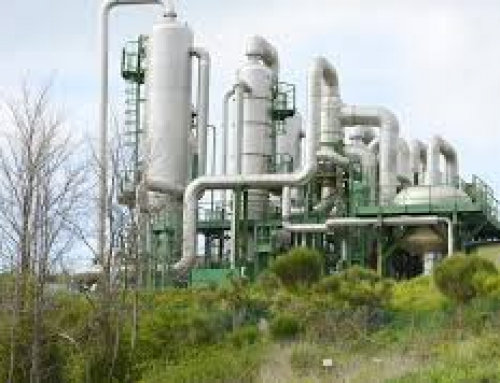The Committee on Climate Change and the Parliamentary Advisory Group on Carbon Capture and Storage (CCS) both released reports on CCS during the summer. They were spurred into action by the lack of any government plan following the cancellation last autumn of the CCS competition and the associated £1 billion budget.
Although the two reports differ over implementation, they agree on the general direction. First, they find that there is no major technological problem with CCS. The techniques of capture are well known, and the storage in depleted offshore oil and gas reservoirs has been well characterized.
It follows that the impediment is organizational: mainly that CCS provides no benefit to either the producers of CO2 or to businesses such as oil companies that might store it. If they are obliged to do it, costs are high, especially as they have to take on the risks involved.
Both reports say that capture must be separated from transport and storage. The first is integral to the power station or industry; the second is an infrastructure investment. The Parliamentary Advisory Group (PAG) go further and suggest that two linked government-owned companies be set up: a Power company and a Transport & Storage Company. These companies would eventually be privatized.

The PAG’s view of a new CCS Delivery Company with two sections, Power and T&S, and the interfaces between different players.
The power company (private or state) would build new gas-fired power stations designed to capture CO2 as well as sell electricity. The strike price would include whatever they need to pay a transport & storage company to remove it. The PAG suggested the price could be £85 per MWh, to be compared with the government’s long-term electricity forecast of £65, and £92.50 for Hinkley Point. All prices are index linked.
The Committee on Climate Change (CoCC) find £115 initially, falling to £85-90 in the 2030s, which leads to a roughly 1.5 per cent increase in a typical household electricity bill. There would also be initial investment costs recuperated through taxes.
Electric power, Industry, Heating and Transport all produce roughly the same proportion of the UK’s CO2 emissions. To reach the level of reduction required in 2050 by the Paris agreement all four sources must be considered. Some could be offset by “negative emissions”: for example producing power from biomass with CCS would lead to a net reduction of CO2 over time.
For Industry the PAG argues that it has “…neither the incentive, the scale nor the credit quality to deliver CCS”. Hence industries should be paid by the government to capture the CO2. The CoCC point out that CCS is the only way to reduce emissions from sectors such as chemicals, steel and cement.
Heating is a major problem since emissions take place from millions of individual boilers and, since demand is highly seasonal, a flexible source is needed. The proposed solution is to convert the existing gas grid and all boilers to run on hydrogen. This would be produced from natural gas by the process of steam reform with CCS.
Transport was not considered in detail. If road transport converts to electric or hydrogen, emissions would be handled as for electric power and heating.
A new state-owned company, incentives to industry, changing all our boilers to hydrogen – all big changes but how necessary? The CoCC says that the cost of meeting the UK’s 2050 target reduction in CO2 would approximately double with other low-carbon alternatives, and that only CCS can meet the target in time. Both reports emphasize the need to act soon. As it is they are looking at 2023/25 before the first CCS power stations are operating.
The use of hydrocarbons, of course, raises other issues: is it our own shale gas (unproved and unpopular) or imported, and how much is there? But do we have an alternative in the near term? CCS is the only solution for some industries, while gas plus CCS provides a flexibility in electricity generation that renewables currently do not. Decisions are needed soon.
Links to the reports can be found below.





